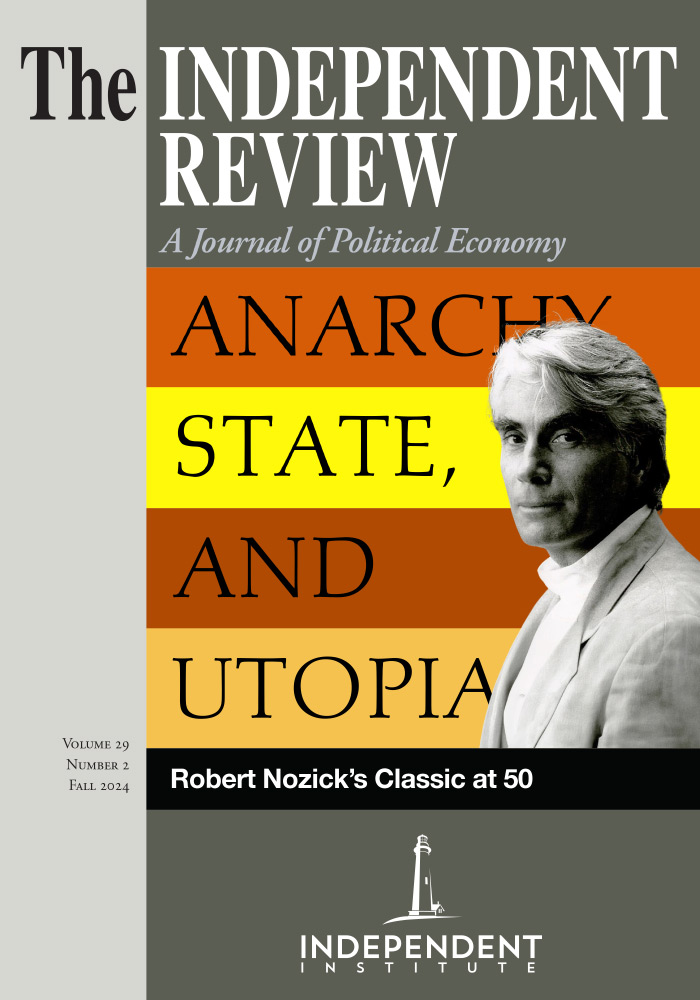There are problems with Robert Nozick’s derivation of a minimal state. First, it is not clear that anarchy would not be morally superior to a Nozickian minimal state. Second, it is predictively uncertain that people would form a dominant protective association and, ultimately, a minimal state. Third, there is no sufficiently unrisky way for the dominant protective association to rule out decision procedures, such as forms of legal adjudication, employed by non-dominant associations.
This full text of this article will be available on this page nine months after its initial print publication. To read it now, please buy this issue in print or downloadable eBook & PDF format, or in the Independent Review app on iOS or Android, or on Magzter which offers digital access on smartphones, tablets, and web browsers.
David Gordon is a Senior Fellow at the Ludwig von Mises Institute.
| Other Independent Review articles by David Gordon | ||
| Winter 2024/25 | You Will Not Stampede Me: Essays on Non-Conformism | |
| Summer 2024 | Moderation in the Pursuit of Justice Is a Virtue: Nicholas Rescher’s Quest for a Good Society | |
| Spring 2024 | For a New Liberty after Fifty Years | |
| [View All (12)] | ||









